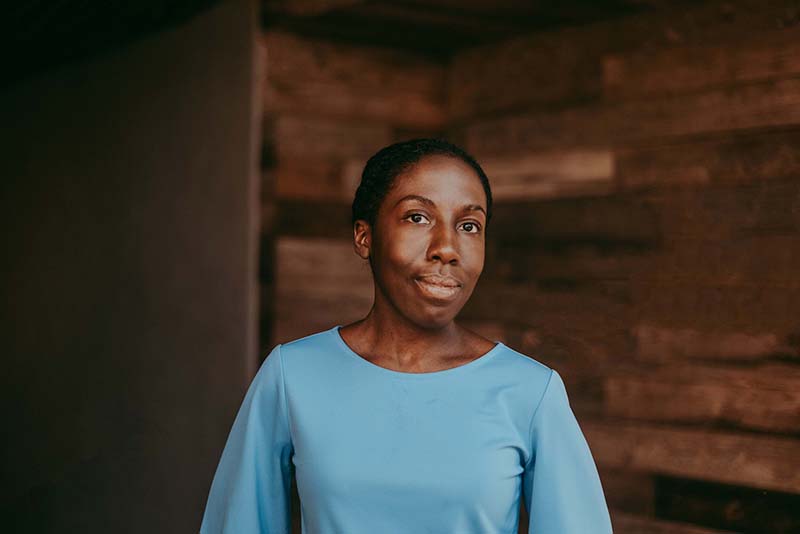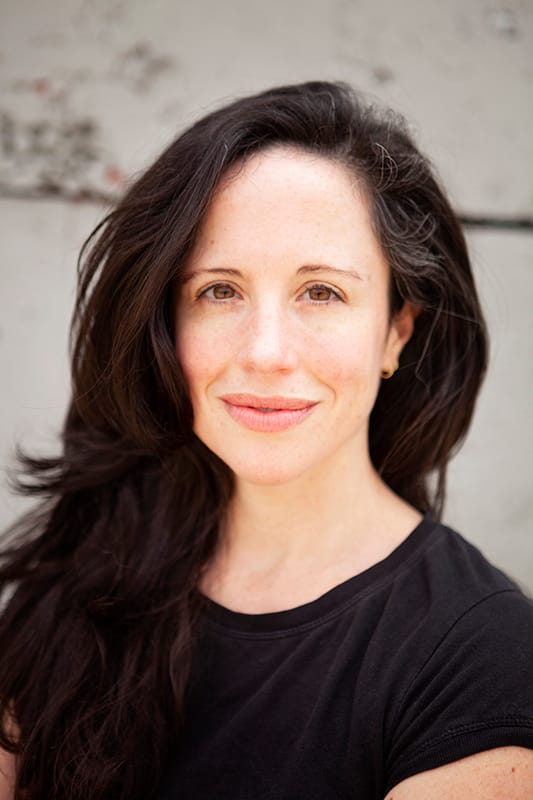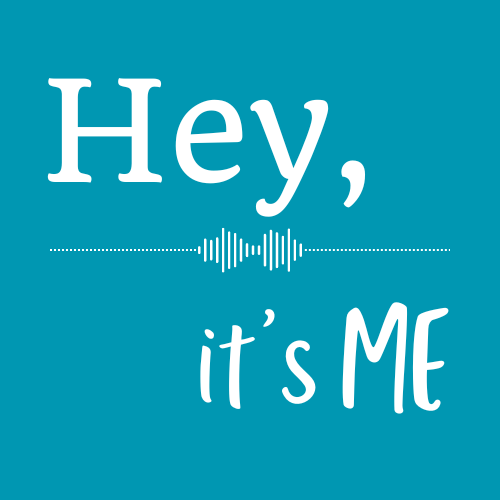Hey, It's Me: Episodes 6 and 7
For September’s first episode of Hey, It’s Me, I wanted to talk about Chappell Roan’s album The Rise and Fall of a Midwest Princess. More specifically, I wanted to talk about why it wasn’t quite hitting for me, despite being a breakout hit and despite the fact that I both appreciate and admire it. That led to a broader discussion about participating in culture that isn’t your own, and how respectful distance can be problematic.
Then, for the second episode, Rachel sent me the audio for a forthcoming episode of Commonplace, in which the guest was her undergraduate photography mentor, Lois Conner. I should note here that that Commonplace episode is still forthcoming, so you can’t listen to it yet. But I think that our conversation about the episode is still interesting and comprehensible without listening to Rachel’s conversation with Conner, because we’re talking less about the details of the audio and more about things like the nature of photography, why we make podcasts, and what it means to give attention (and to want it).
New KTCO: Jennifer Baker

Jennifer Baker has been one of the people I’ve looked up to for a while as a model of literary citizenship, so when I heard that she had a YA novel coming out, I immediately pre-ordered it. Forgive Me Not is a powerful and insightful book about the American carceral system, as well as a moving coming-of-age and family story.
The story follows Violetta Chen-Samuels, a high school student in New York City whose life has gone off the rails, culminating in the death of her younger sister in a drunk driving accident that Violetta caused. In this version of New York, juvenile offenders are given the option of enduring Trials—a sort of codified form of “tough love”—instead of incarceration. But despite being intended as a reform of the criminal justice system, the Trials, too, are harsh and retributive. Forgive Me Not delves into the harms of our carceral system, and how race, class, gender, and other systems of marginalization interact with it, and ultimately the question of forgiveness and punishment.
Jennifer and I had a great conversation about how she approached writing her characters, why it was important for her to focus on systems rather than individual guilt or innocence, and how to write about serious topics for younger readers.
Hey, Its Me: Episodes 4 and 5
Rachel and I are trying to commit to a two-episode-per-month schedule for Hey, It’s Me, and so far it’s going pretty well. For our first episode in August, I asked to talk about Star Trek, and particularly what it was about the more recent series that didn’t really feel like Star Trek to me, even though I have been enjoying them. As always, we wandered a bit far afield from that premise, to conversational spots including Star Trek as personal foundational text, cozy fiction, optimism vs. hope, and the cultural role of motherhood.
For our second episode, Rachel sent me the first section of her novel-in-progress so that we could discuss it. If you’ve been listening along, you’ll have heard us mention the novel a few times before, but one piece of context that might not have gotten mentioned is that the book’s main character is named Rachel Zucker, and another major character is named Mike and talks exactly like me. As many of our episodes do, this one does get a bit meta. But I think that there’s also some really interesting discussion about the art-making process, not to mention that the dynamic between two friends trying to talk around and into a sort of challenging topic. I am really interested to know how this episode in particular strikes listeners.
New KTCO: Rachel Lyon

I’m pleased to welcome writer Rachel Lyon back to KTCO for a conversation about her latest novel, Fruit of the Dead. It’s a compelling and (I thought) chilling contemporary retelling of the Persephone myth, told from the perspectives of Cory, a young woman seduced by extreme wealth and privilege, and Cory’s mother, Emer, who has to go looking for Cory after she seemingly disappears one day. The story is about addiction and sexual assault, about power and class, about mothers and daughters, and about what it means to have agency and to come of age. I thought it was incredible.
Hey, It's Me

My friend Rachel Zucker and I launched a new podcast this month, called Hey, It’s Me. As longtime listeners to Keep the Channel Open may know, both Rachel and I have been interviewing artists and writers for many years on our respective podcasts, but we both wanted a place to talk about stuff that didn’t fit into those shows. This new one grew out of the conversations we’ve been having via WhatsApp voice messages for the past few years. The show is, in one sense, a chat show in which we discuss topics from podcasting to pop culture to relationships or whatever life brings us. But it’s also a show about friendship, specifically our friendship, how we talk with each other about ourselves and each other, how we show up for each other, how sometimes we fail to connect and have to work through that. It’s a really intimate experience, making this show, and I’m interested to know whether it’s of interest to anyone else.
Here are some links you can use to subscribe and listen to Hey, It’s Me:
You can also find full episodes and more info about the show on our website at heyitsmepodast.com
New KTCO: Amanda Marchand
I had the pleasure of being in the audience for Amanda Marchand’s Second Sight lecture at this year’s Medium Festival, back in May. I was, of course, immediately struck by the simple and elegant compositions of her lumen prints (an example of which is shown above—her image “Roseate Tern”), but it was her process that truly fascinated me. I’m always interested in the separation between what can and can’t be seen in a photographic image, and in her Lumen Notebook series, Amanda mostly uses books to create the photograms. And not just any books, but specific books that have specific meaning to her. It turns out that both she and I have a fascination with the way that language and image interact, so it was a real treat getting to pick her brain for this episode.
Here are some handy links for the episode:
In the course of our conversation, we mentioned several of Amanda’s books, which you can purchase:
- The World is Astonishing with You in It (2021, self-published, contact artist to purchase: [email protected])
- Nothing Will Ever Be the Same Again (2019, Datz Press)
- Night Garden (2015, Datz Press)
Some additional resources you may enjoy in conjunction with today’s episode:
- Amanda’s Medium Festival lecture is a great overview of her work and process.
New KTCO: Sarah Hollowell
I have been a big fan of Sarah Hollowell both as a writer and as a person for many years now. She's one of my favorite presences on Twitter and with the publication of her debut novel, A Dark and Starless Forest, she's become one of my favorite YA writers as well.
There's a lot that I love about the book. Sarah excels at creating an atmosphere of magic that is full of wonder while also feeling eerie and dangerous. In terms of representation, this book also features a fat protagonist as well as queer characters, which I very much appreciate in a YA novel. Mostly, though, it's just a well-paced and extremely satisfying story.
In our conversation, Sarah and I talked about her writing process, about abuse dynamics, about fan fiction, and about how she engaged with anger and violence in A Dark and Starless Forest. In the second segment, we talked about the Alpha Young Writers Workshop, how it was such a formative experience for her and why she loves working with teens. I hope you enjoy the episode!
Here are some handy episode links:
And some purchase links for the book! As always, I recommend picking it up from your local independent bookstore, but if you don't have one of those available, here are some other options:
Some additional resources that you might enjoy in conjunction with today's episode:
- Sarah's short story "Crow's Eye" was featured in episode 2 of LikeWise Fiction. It's a great example of her short fiction and has a very similar style to A Dark and Starless Forest.
New KTCO: Ayesha Raees
When I first started reading Ayesha Raees's debut book of poetry, Coining a Wishing Tower, I had a certain feeling of being unmoored. The form of the book (fragments that might be fable or might be prose poetry) and the tone (which varied between the fragments, some strange and Borgesian, others quite concrete) all contributed to that. But the further in I got, the more it began to cohere into an experience that, if I couldn't fully articulate what it was doing or how, was nevertheless potent and resonant. What was clear at that point was that this was a book that I'd need to return to more than once, and which would reward me if I did with new insights. That turned out to be entirely true, and I discovered threads about loss, about grief, about religion and ritual, about belonging and separation, and of a certain optimism in the face of devastation. Needless to say, I was pleased to get to talk with Ayesha for this week's episode.
Here are some handy episode links:
And some purchase links for the book! As always, I recommend picking it up from your local independent bookstore, but if you don't have one of those available, here are some other options:
Some additional resources that you might enjoy in conjunction with today's episode:
- This interview at CutBank between Ayesha and Josh Wagner was an interesting starting point for me in thinking about how I wanted to approach my conversation with her.
- Ayesha's Vimeo page has a number of examples of her hybrid work, combining image, text, and sound for a fascinating artistic experience. I particularly recommend her four-part video "A Manual (or memoir), For Learning (or knowing), About a Tentative (or fleeting), Ticking thought Machine (or being)."
New KTCO: Anahid Nersessian
I tend not to read a whole lot of nonfiction books—for the most part, if I'm going to read criticism then I tend to read it as separate essays, and usually online. But Anahid Nersessian's Keats's Odes: A Lover's Discourse was such an edifying and resonant experience to read. Not only did she teach me a lot about a set of poems that I hadn't thought about in years—John Keats's Great Odes—but moving through the essays in this book is a personal narrative about a relationship that, although oblique, I found both emotionally moving and intellectually fascinating, particularly in how that personal narrative functions with the more straightforward critical portions. I really enjoyed having this conversation with Anahid, and I hope you enjoy it, too.
Here are some handy episode links:
And some purchase links for the book! As always, I recommend picking it up from your local independent bookstore, but if you don't have one of those available, here are some other options:
Some additional resources that you might find interesting in conjunction with this conversation:
- Anahid has a new piece out in the New York Review of Books, titled "Catastrophic Desire," which is about the Iranian poet Forough Farrokhzad.
- This conversation between Anahid and her friend, the actor Zoe Kazan, about the book was one of the first sources I checked out to help shape this conversation, and I thought it was pretty enlightening.
- Similarly, this conversation between Anahid and Michael Robbins was very useful.
- I also very much enjoyed reading Anahid's NYRB piece "Love for Sale," about Eva Illouz’s The End of Love. Reading someone's critical work, I find, always gives an interesting perspective into how they think.
Happy listening!
New KTCO: Anahid Nersessian
I tend not to read a whole lot of nonfiction books—for the most part, if I'm going to read criticism then I tend to read it as separate essays, and usually online. But Anahid Nersessian's Keats's Odes: A Lover's Discourse was such an edifying and resonant experience to read. Not only did she teach me a lot about a set of poems that I hadn't thought about in years—John Keats's Great Odes—but moving through the essays in this book is a personal narrative about a relationship that, although oblique, I found both emotionally moving and intellectually fascinating, particularly in how that personal narrative functions with the more straightforward critical portions. I really enjoyed having this conversation with Anahid, and I hope you enjoy it, too.
Here are some handy episode links:
And some purchase links for the book! As always, I recommend picking it up from your local independent bookstore, but if you don't have one of those available, here are some other options:
Some additional resources that you might find interesting in conjunction with this conversation:
- Anahid has a new piece out in the New York Review of Books, titled "Catastrophic Desire," which is about the Iranian poet Forough Farrokhzad.
- This conversation between Anahid and her friend, the actor Zoe Kazan, about the book was one of the first sources I checked out to help shape this conversation, and I thought it was pretty enlightening.
- Similarly, this conversation between Anahid and Michael Robbins was very useful.
- I also very much enjoyed reading Anahid's NYRB piece "Love for Sale," about Eva Illouz’s The End of Love. Reading someone's critical work, I find, always gives an interesting perspective into how they think.
Happy listening!